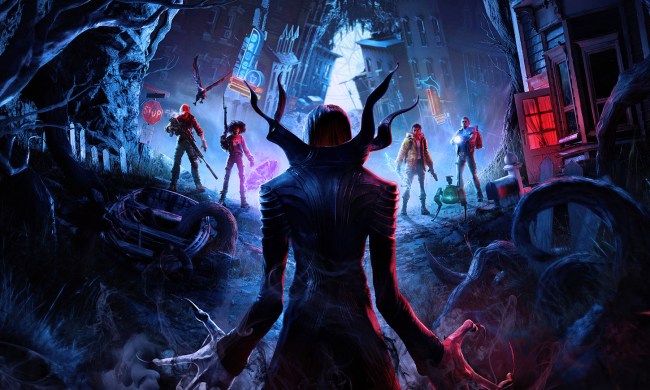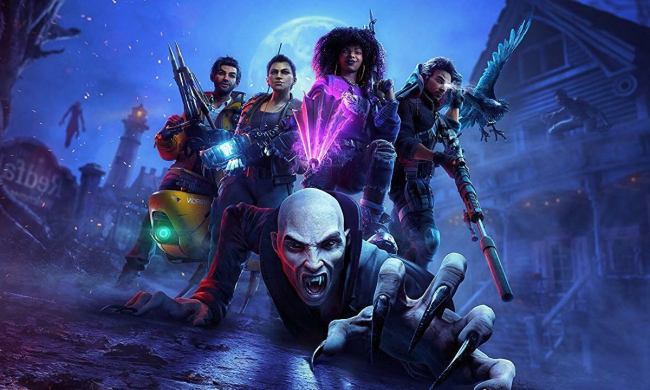You have to give Microsoft points for timing.
The day before pre-orders go live for the Xbox Series X and Xbox Series S, it announces the surprise takeover of Bethesda Softworks, immediately cementing its central strategy into place for the next generation — while putting Sony back on the defensive.
While certain Sony exclusives will remain in place for the PlayStation 5, those will likely be the last for a while – and Xbox is likely to get timed console exclusives (at least) on much larger games that are in the pipeline, including Starfield and The Elder Scrolls VI.
Those games alone could be a tremendous draw for the company’s next-generation console.
For Microsoft, the acquisition is very much in line with the strategy it has trumpeted since the early days of the Series X announcements. Games are no longer a product for the company — they’re a service.
The Netflix of games
Xbox Game Pass is Microsoft’s not-so-secret weapon this generation. Sony has showcased a much wider selection of launch games for the PS5, but Microsoft has seemingly always had its eye on the long term, hoping to create a Netflix-like model of games for a single price.
In order for that to be compelling, though, Game Pass needed to have a strong content library – whether Microsoft built that itself or bought it from partners. Now the company is doing both.
The amount that Microsoft shelled out for Bethesda underscores just how important the company was to its overall strategy. In 2014, it paid $2.5 billion for Minecraft creator Mojang. Monday’s deal was valued at $7.5 billion.
For perspective, that’s $3.5 billion more than Disney paid for the rights to the Star Wars empire.
Bringing Bethesda into Game Pass gives it several well-respected franchises, including Doom, Fallout, The Elder Scrolls, Wolfenstein, Dishonored, and Prey.
That basically brings Microsoft to parity with Sony when it comes to enormous first-party games. And the additional breadth (and depth) of the catalog should also help Microsoft substantially build the Game Pass subscriber number from its current count of 15 million – especially as new games appear there upon launch.
The addition of cloud gaming to Game Pass – and the ability to play new Bethesda games on any platform that supports that service – will help lure subscribers as well.
What does this mean for Bethesda games?
Anytime the developer of wildly popular franchises is acquired, there is a natural (and understandable) reaction on the part of the community of trepidation and concern. Microsoft, though, has a track record it can point to as those concerns are raised.
Six years ago, Microsoft bought Mojang. Fans feared the worst, but Minecraft has both thrived and remained a multiplatform game in that time. And even the most ardent opponents would concede Microsoft’s purchase has proven to be positive.
Whether or not future Bethesda games are console exclusives to Microsoft, they won’t be constricted to a single platform. Microsoft has learned the benefits of expanding the ecosystem of competitors through services like Office 365. Game Pass is the next step in that evolution. And Bethesda will be a key part of that movement.
So, while it’s possible that Dishonored 3 or The Elder Scrolls VI or other titles won’t make it onto a PlayStation or Switch anytime close to their launch dates in downloadable or physical form, they could through xCloud or Game Pass, assuming Microsoft can strike the appropriate deals. And they certainly will be on PC and Android devices.
As the next round of consoles goes on sale, some people will focus on hardware numbers, since that has been the barometer of success for so long for Microsoft, Sony, and Nintendo. Others will look at sales figures on a per-title basis.
Neither of those is going to be an accurate measurement tool for success by the middle of the next generation of video games, however. Whether it’s streaming services like xCloud or bundled subscriptions like Game Pass, PlayStation Plus Collection, UPlay+, or some other collection, the way people play games is facing a paradigm shift.
And by bringing Bethesda and its arsenal of talented developers and AAA franchises under its wing, Microsoft is positioning itself to be a new kind of industry leader.



